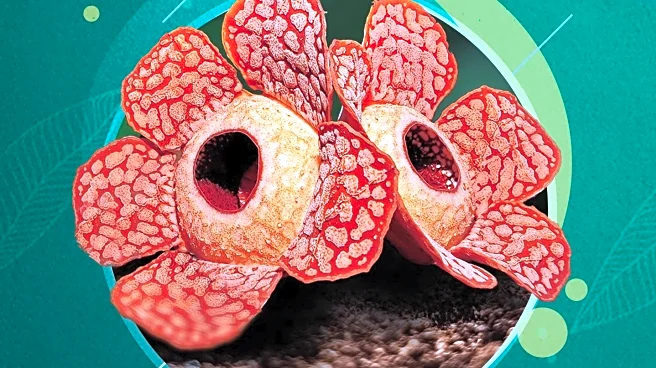What is the story about?
What's Happening?
Recent research has uncovered that SUMO2 lactylation plays a crucial role in counteracting ferroptosis in lung adenocarcinoma (LUAD) by enhancing the degradation of ACSL4, a key enzyme involved in lipid metabolism. The study utilized various assays, including cell viability tests and lipid peroxidation detection, to demonstrate that SUMO2-K11 lactylation is significantly elevated in response to ferroptosis induction. This modification appears to be a pivotal factor in determining resistance to ferroptosis, a form of programmed cell death. The research involved treating LUAD cells with ferroptosis inducers and observing increased global protein lactylation levels. Single-cell RNA sequencing data further revealed that SUMO2 is predominantly expressed in tumor cells, highlighting the specificity of the K11-Pep peptide used in the study.
Why It's Important?
The findings are significant as they provide insights into the mechanisms of ferroptosis resistance in lung adenocarcinoma, a common and aggressive form of lung cancer. Understanding these mechanisms could lead to the development of new therapeutic strategies aimed at sensitizing cancer cells to ferroptosis, potentially improving treatment outcomes. The study's identification of SUMO2 lactylation as a key player in this process suggests that targeting this modification could be a viable approach to overcoming resistance in cancer therapy. This research could have broader implications for the treatment of other cancers where ferroptosis resistance is a challenge.
What's Next?
Future research may focus on developing drugs that can modulate SUMO2 lactylation to enhance the sensitivity of cancer cells to ferroptosis. Additionally, clinical trials could be designed to test the efficacy of such treatments in patients with lung adenocarcinoma. The study also opens avenues for exploring the role of SUMO2 lactylation in other types of cancer, potentially leading to new, targeted cancer therapies. Researchers and pharmaceutical companies may collaborate to translate these findings into clinical applications, aiming to improve survival rates and quality of life for cancer patients.
Beyond the Headlines
The study highlights the complex interplay between genetic and epigenetic factors in cancer resistance mechanisms. It underscores the importance of understanding post-translational modifications like lactylation in the regulation of cell death pathways. This research could also influence the development of personalized medicine approaches, where treatments are tailored based on the specific molecular characteristics of a patient's tumor. The ethical implications of such targeted therapies, including access and affordability, will need to be considered as these treatments move closer to clinical use.

















